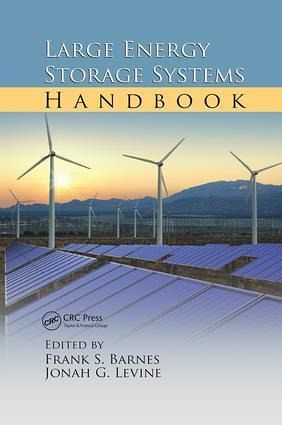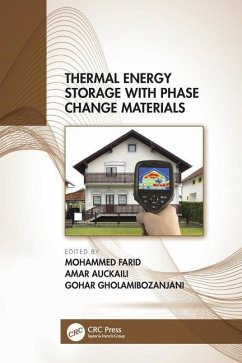
Large Energy Storage Systems Handbook
Versandkostenfrei!
Versandfertig in 1-2 Wochen
95,99 €
inkl. MwSt.
Weitere Ausgaben:

PAYBACK Punkte
48 °P sammeln!
In the current push to convert to renewable sources of energy, many issues raised years ago on the economics and the difficulties of siting energy storage are once again being raised today. When large amounts of wind, solar, and other renewable energy sources are added to existing electrical grids, efficient and manageable energy storage becomes a crucial component to allowing a range of eco-friendly resources to play a significant role in our energy system. In order to fulfill our intended goal of diminishing dependence on non-renewable sources of energy and reducing our carbon footprint, we ...
In the current push to convert to renewable sources of energy, many issues raised years ago on the economics and the difficulties of siting energy storage are once again being raised today. When large amounts of wind, solar, and other renewable energy sources are added to existing electrical grids, efficient and manageable energy storage becomes a crucial component to allowing a range of eco-friendly resources to play a significant role in our energy system. In order to fulfill our intended goal of diminishing dependence on non-renewable sources of energy and reducing our carbon footprint, we must find a way to store and convert these novel resources into practical solutions. Based on the efforts of a University of Colorado team devoted to increasing the use of renewable energy production within the current electrical power grid, Large Energy Storage Systems Handbook examines a number of ways that energy can be stored and converted back to electricity. Examining how to enhance renewable generation energy storage relative to economic and carbon impact, this book discusses issues of reliability, siting, economics, and efficiency. Chapters include the practicalities of energy storage, generation, and absorption of electrical power; the difficulties of intermittent generation; and the use of pumped and underground pumped hydroelectric energy storage. The book highlights the storage of compressed air, battery energy, solar thermal, and natural gas sources of energy. Heavily referenced and easily accessible to policy makers, developers, and students alike, this book provides contributions from those active in the field for coverage of many important topics. With this book as a foundation, these pioneers can develop the capacity of power grids to handle high renewable energy generation penetration and provide a brighter future for generations to come.














